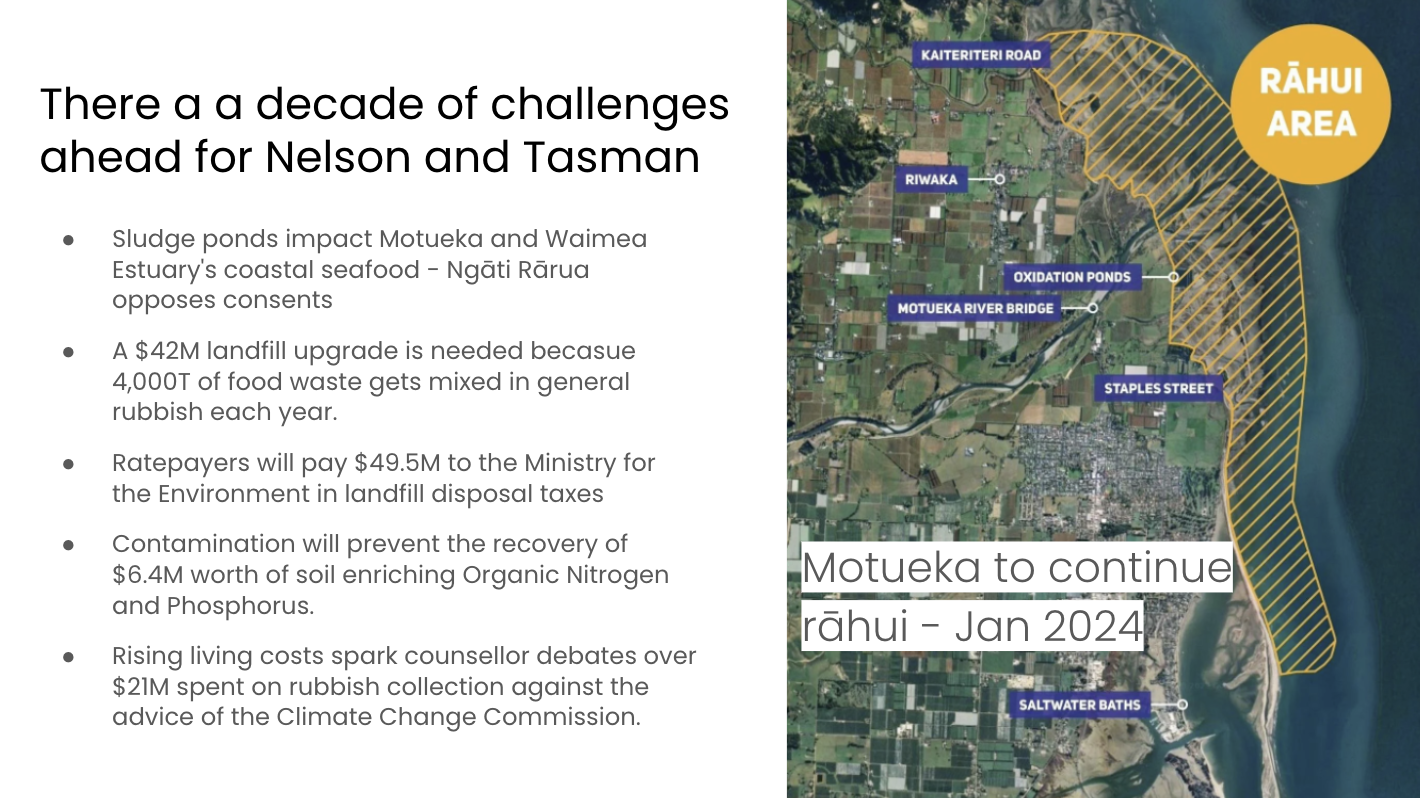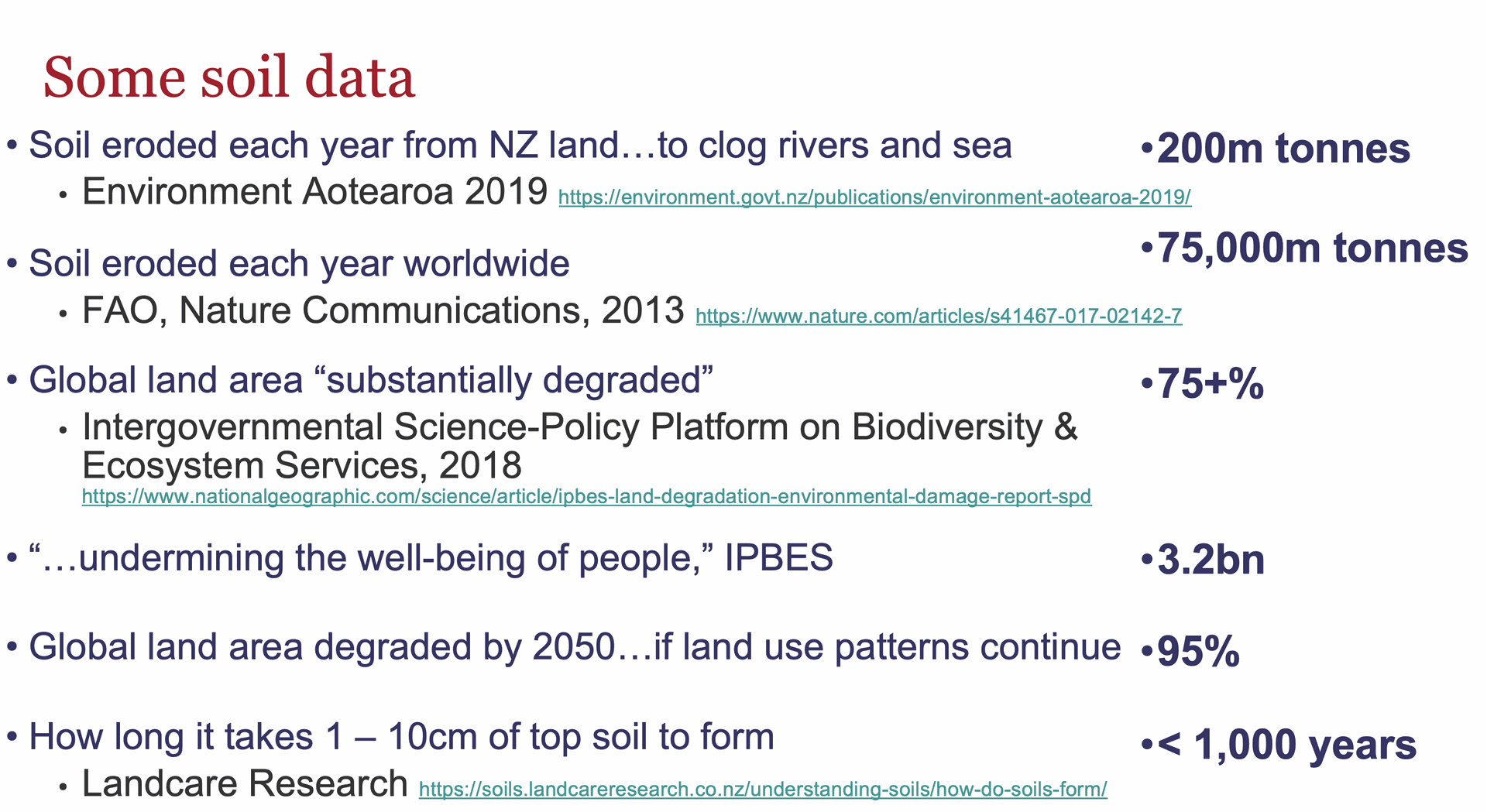As the communities of Nelson and Tasman stand on the precipice of environmental and financial difficulty, the pressing issue of landfill organics and its far-reaching consequences demands our immediate attention. The intricate dance between sustainability, economic responsibility, and ecological preservation has never been more critical as local leaders, environmental advocates, and residents grapple with a decade of challenges that loom large on the horizon.
The Socio-Economic Balancing Act
Amidst rising living costs, the allocation of $21 million towards rubbish collection — a move contrary to the advice of the Climate Change Commission — has sparked intense debate among councillors. This decision highlights the challenging balancing act between immediate financial pressures and our communities' long-term sustainability and health.
Call for council to commit to emissions cut targets.

The Financial and Environmental Cost of Complacency
Central to this dilemma is the revelation that an astonishing 4,000 tonnes of food waste are carelessly mixed with general rubbish each year, necessitating a staggering $42 million upgrade to the existing landfill infrastructure. This is not merely a matter of fiscal prudence but a reflection of a more profound, more systemic disregard for the potential of organic waste as a resource rather than refuse.
The financial implications extend beyond the immediate costs of landfill upgrades. Ratepayers are poised to shoulder a $49.5 million burden in landfill disposal taxes levied by the Ministry for the Environment, a stark reminder of the price of inaction over ten years.
Ecological Implications: A Closer Look at Sludge Ponds and Estuarial Health
The environmental ramifications of current waste management practices cast a long shadow, particularly over the Motueka and Waimea Estuaries. The sludge ponds, a direct byproduct of the inefficiencies plaguing our waste disposal systems, pose a significant threat to coastal seafood, a vital component of the local ecosystem and economy. The opposition from Ngāti Rārua, a testament to the gravity of the situation, underscores the urgent need to reevaluate waste management consents and practices.
The Untapped Potential of Organics in Landfill
Meanwhile, the contamination of potential compostable materials not only signifies a missed opportunity for waste reduction but also foregoes the recovery of an estimated $6.4 million worth of soil-enriching organic nitrogen and phosphorus over the next decade.
The heart of the solution may lie in a resource we have long overlooked: organic waste. Integrating organics into landfill management offers a pathway to mitigating the challenges, as mentioned earlier, and also holds the key to enhancing soil health. Data from Rod Orom's recent presentation to the Nelson branch of the NZ Institute of International Affairs on February 22nd, 2023, illustrates a concerning trend of soil degradation due to nutrient depletion and contamination. We can reverse this trend by redirecting organic waste from landfills to composting facilities, enriching our soils with essential nutrients and fostering a more sustainable and resilient agricultural sector - the data below provided with thanks from Rod Orom at EHF Feb 26, 2024.

This approach addresses landfill organics' immediate challenges and aligns with broader environmental and climate goals. As highlighted by Nelson Tasman Climate Forum members, the potential benefits of organic waste composting extend far beyond landfill management, offering a beacon of hope for ecological restoration and climate resilience.
Looking Ahead: A Call to Action
The journey towards a sustainable, economically viable, and environmentally responsible future for Nelson and Tasman is fraught with challenges. Yet, within these challenges lies an opportunity to redefine our relationship with waste, to see beyond its immediate disposal and towards its potential as a resource for ecological and economic renewal.
As we navigate the next decade, the choices we make today will determine the legacy we leave for future generations. It is incumbent upon us all — policymakers, environmental advocates, and residents alike — to embrace the transformative potential of organics in landfills, forging a path towards a future where our soil's health reflects our community's health.
